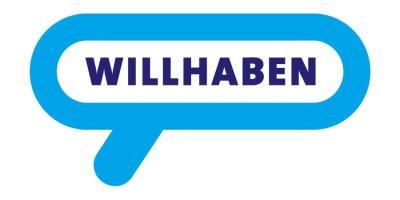Regarding online travel booking, hidden traps and obstacles are not uncommon. The European Consumer Centre provides tips and help.
Mrs. Z wanted to take a trip to Mallorca. On the website "ab-in-den-urlaub.de", she found an offer that sounded good. According to the information stated on the website, the reservation could be cancelled within 24 hours from sending the confirmation, so Mrs. Z considered it to be safe to booked. Shortly after, she found an even better offer on another website and therefore cancelled the journey of "ab-in-den-urlaub.de" via e-mail. The cancellation free of charge was confirmed shortly after via e-mail. The surprise was therefore great as Mrs. Z receives another mail with a message of an employee of "ab-in-den-urlaub.de", congratulating her on the booked journey to Mallorca. The consumer of course was confused and didn't know how to react. A direct response would have been pointless, as the e-mail was sent from a no reply address.
Keep the e-mail confirming the cancellation
Mrs. Z tried to reach someone by phone, but always got stuck on hold. Finally she turned to the European Consumer Centra Austria (ECC). Barbara Forster, expert on travel issues, reassured her by telling her that, in case of doubt, the e-mail confirming the cancellation would be a sufficient piece of evidence. It would therefore be very important to keep that e-mail. Forster furthermore advises against calling travel agencies from abroad, as high costs may occur. If the consumer needs a confirmation to feel safe, he could request it via a registered letter with all former correspondence with the trader attached.
Double booking
Unfortunately, cases like the one of Mrs. Z don't stand alone. ECC Austria receives several cases per week with regards to online booking of journeys. Most of them concern online travel agencies. However, the situations are not always as clear as in the case described above. So called double bookings happen often, for example when the website of the provider suddenly crashes at the end of the booking process and the consumer doesn't get a booking confirmation or at least thinks that he didn't get one. Some impatient consumers immediately try to book again and therefore it happens that they booked the same journey twice in the end. Cancellation fees then occur.
Barbara Forster therefore advises not to undertake a second try immediately, but to make sure beforehand whether a confirmation of the travel agency exists. Confirmation e-mails tend to land in the spam folder and some traders send them with delay.
Booking is binding
It is sometimes not clear to consumers, from which moment on the contract with the online travel agency or airline is valid. Actually, it is concluded when the booking is confirmed, which usually happens via e-mail. The consumer is bound to the booking request as soon as he entered his personal data and clicked on "book with obligation to pay", regardless of whether he also already stated his credit card number or not. It is very important to enter your name exactly as it is written in your passport. Some airlines are very explicit about this and charge high fees for rebooking, if it possible at all.
Screenshots
The experts of ECC Austria recommend to take screenshots of every step during the online booking process in order to collect evidence. In case of doubt, consumers can - for example - prove that fees were charged afterwards that weren't stated in the offer. According to the law, the final amount has to appear before the booking confirmation via button.
Complaints
Book directly at the contractual partner, if possible
Consumers are sometimes not aware of who their final contractual partner is. They start their search for a good offer at a comparison platform, then get forwarded to other websites, like of an online travel agency or an airline. Regarding the contract on transport services (flight), the airline is your contractual partner. If flight and accommodation are booked together at one single package price, it is defined as package travel. Contractual partner is the tour operator. To know who the contractual partner is, is especially important if you want to change something about the journey. Airlines often request that changes in booking or refunds of ticket prices are handled by the online travel agency where the consumer booked it. Unfortunately, those agencies are often difficult to reach.
Our tip: Compare prices carefully and book, if no main advantage occurs otherwise, directly at the respective contractual partner. If problems occur regarding online travel booking, the European Consumer Centre Austria (ECC) provides help and advise.
Copyright of the German version of this article: 2015 Verein für Konsumenteninformation (VKI)
Translated by ECC Austria








